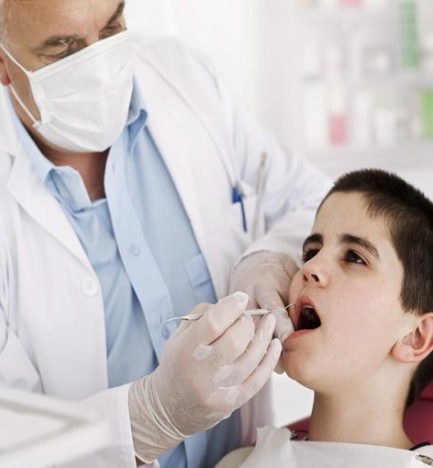
It’s not an easy task for parents/guardians to encourage their children to brush their teeth and developing a good routine can take time and patience. However it’s important to ensure brushing starts as soon as their teeth begin to come through.
Parents/guardians should be advised to take their children to the dentist as soon as their first milk teeth appear. Though this can be a daunting time for any parent and child, starting early will allow the child to get used to their surroundings and get them practicing to open their mouth. Dentists are experts in terms of the advice they can offer parents on how to look after their child’s teeth. The British Dental Association (BDA) advises that children should go for a check-up at least once a year from 18 months old.
Baby teeth are generally thinner, so the enamel will not be as strong as adult teeth and can be more prone to tooth decay if they are not looked after properly. If a dental extraction is needed, this can harm the way the child’s teeth develop as they grow up.
Good oral hygiene starts at home with brushing teeth correctly. For tips on brushing children’s teeth, take a look at the NHS Choice’s page here for further information.
Toothbrushing Top Tips
Here are a few tips you can give to parents/guardians on getting the best out of brushing:
- Why not let your child pick out their own toothbrush so they know it’s theirs – this is a great way of introducing ‘a routine’.
- Manual or electric toothbrush? Doesn’t matter how it’s done, as long they aim to clean the surface of the teeth using fluoride toothpaste. Some retailers sell electric toothbrushes with a built in timer to ensure your child brushes their teeth for the time advised.
- Children should brush their teeth for about two minutes, twice a day. Once before bedtime and one other time during the day. Children should be supervised up to the age of seven but do ask the dentist for more advice.
- Help your child by guiding them on how to brush their teeth – you might want to use a mirror. Encourage your child to do it themselves as opposed to doing it for them
- Make it fun! If you make it into a game, children are more likely to stick to it as part of their routine – you might want to make up a song or use music as a way of encouraging them
- Ensure that children don’t lick or eat toothpaste from the tube
Sugar
Alongside brushing, it’s important for parents to be mindful about how much sugary food or drinks their child is consuming. Too much sugar can lead to tooth decay but can also be dangerous to the body linking into some serious long term conditions such as obesity, type 2 diabetes and heart disease in later life.
The maximum daily intake of sugar for children is as follows:

Offer parents/guardians sugar free medications to help reduce this. Familiarise yourself with the products you stock and if there is a sugar-free alternative.
